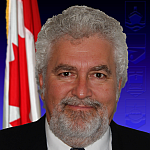Rail transportation safety investigation R13W0257
The TSB has completed this investigation. The report was published on 03 March 2015.
Table of contents
Main-track derailment
Canadian National
Freight train G84042-09
Mile 73.6, Fort Frances Subdivision
Nickel Lake, Ontario
The occurrence
On , at approximately 1727 Central Standard Time, Canadian National freight train G84042-09, travelling eastward on the Fort Frances Subdivision, derailed 40 loaded grain cars at Mile 73.6, near Nickel Lake, Ontario. There were 2 separate groups of derailed cars, 12 cars in one group and 28 cars in the other. Several of the derailed cars ruptured, spilling grain. There were no injuries.
Media materials
News releases
A combination of factors contributed to derailment at Nickel Lake, Ontario in November 2013
Read the news release
Deployment notice
Transportation Safety Board of Canada will deploy a team of investigators to a rail accident in Fort Frances, Ontario
The Transportation Safety Board of Canada (TSB) will deploy a team of investigators to the site of a rail accident near Fort Frances, Ontario. The CN train has derailed an estimated 40 car loads of grain. The TSB will gather information and assess the occurrence.
Investigation information
Map showing the location of the occurrence
Investigator-in-charge

George Fowler has been with the Transportation Safety Board of Canada since 2002. Before joining the TSB, he held various senior engineering positions during a 30 year career with CN in Edmonton, Kamloops, Montréal, and Toronto.
Mr. Fowler has extensive knowledge and experience in railroad engineering, and has been involved in the investigations of a number of serious railroad occurrences across Canada since joining the TSB. Mr. Fowler graduated from the University of Alberta with a degree in Civil Engineering and is a registered professional engineer.
Download high-resolution photos from the TSB Flickr page.
Class of investigation
This is a class 3 investigation. These investigations analyze a small number of safety issues, and may result in recommendations. Class 3 investigations are generally completed within 450 days. For more information, see the Policy on Occurrence Classification.
TSB investigation process
There are 3 phases to a TSB investigation
- Field phase: a team of investigators examines the occurrence site and wreckage, interviews witnesses and collects pertinent information.
- Examination and analysis phase: the TSB reviews pertinent records, tests components of the wreckage in the lab, determines the sequence of events and identifies safety deficiencies. When safety deficiencies are suspected or confirmed, the TSB advises the appropriate authority without waiting until publication of the final report.
- Report phase: a confidential draft report is approved by the Board and sent to persons and corporations who are directly concerned by the report. They then have the opportunity to dispute or correct information they believe to be incorrect. The Board considers all representations before approving the final report, which is subsequently released to the public.
For more information, see our Investigation process page.
The TSB is an independent agency that investigates air, marine, pipeline, and rail transportation occurrences. Its sole aim is the advancement of transportation safety. It is not the function of the Board to assign fault or determine civil or criminal liability.